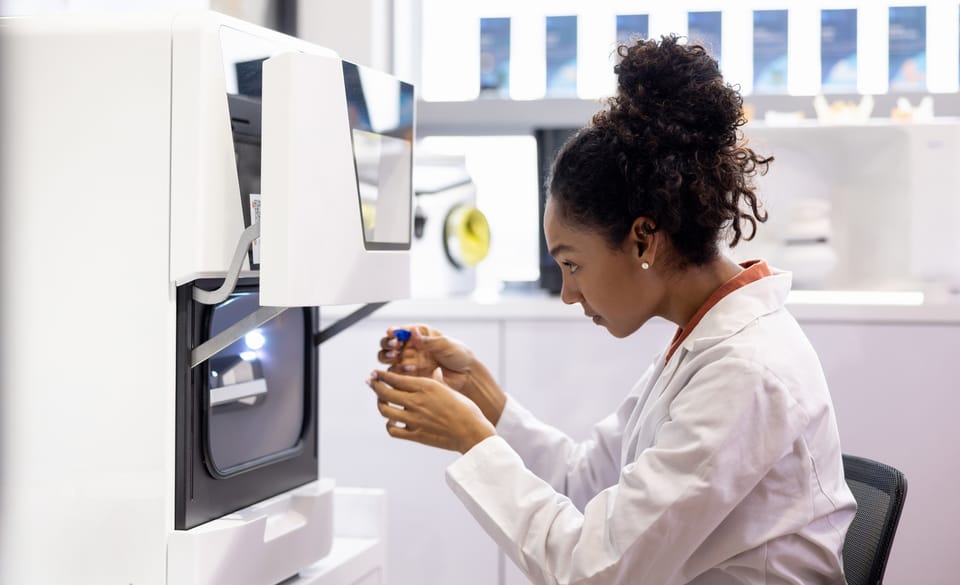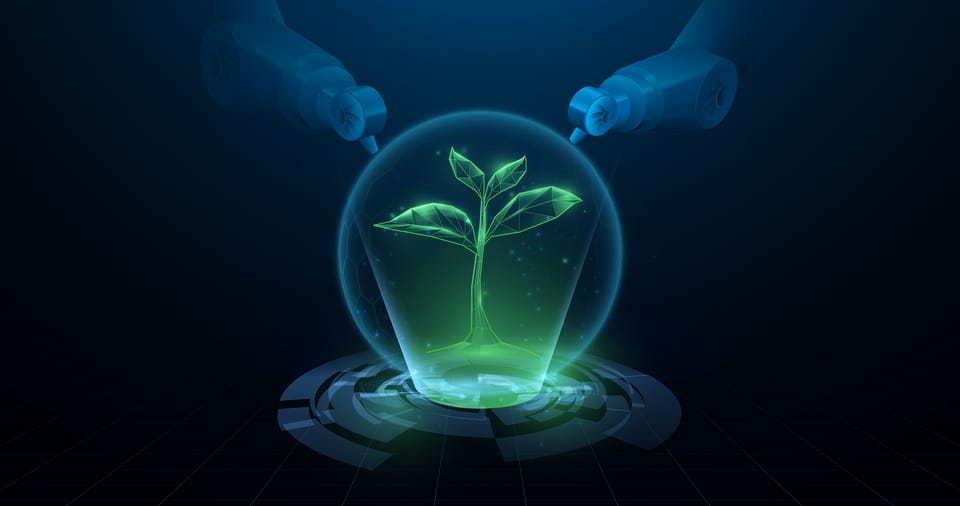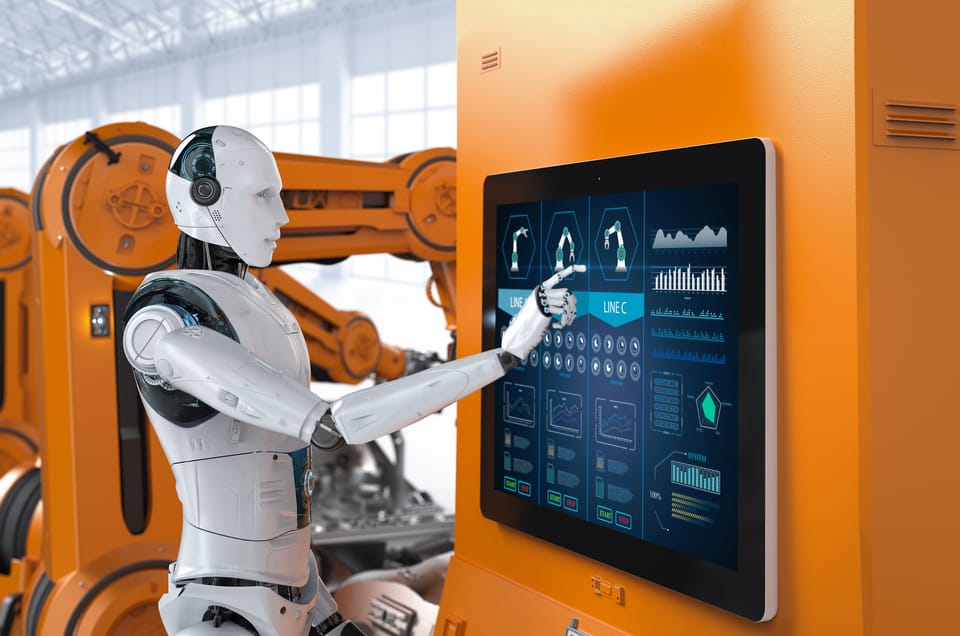🛠️ Skills and Workforce Futures #08
HolonIQ’s Skills newsletter explores global labor trends, reskilling initiatives, and workforce gaps across impact sectors. Dive into the latest insights on the Green Skills Map, climate, space, advanced tech, and health—key to the future of work and innovation.

HolonIQ is now tracking reskilling and upskilling initiatives that are critical in bridging workforce gaps. Impact industries are rapidly evolving, fueled by technological advancements, decarbonization, geopolitical dynamics, and socio-economic factors. These sectors require considerable workforce/professional development initiatives to enhance workers' capabilities, boost economic growth, and promote social well-being. Read on for this week’s insights.
🌎 Global Labor Market Trends
💡 Nvidia is expanding its workforce in China despite rising trade tensions and regulatory scrutiny, aiming to lead AI development for autonomous vehicles. The company has increased its staff from 3,000 to 4,000, focusing on R&D for self-driving cars and tapping into China's electric vehicle market. While facing US export restrictions and China's antitrust investigations, Nvidia's strategy includes producing specialized AI chips for the Chinese market. This expansion underscores Nvidia's commitment to innovation amid geopolitical challenges and intense global competition in the semiconductor industry.
👷 EY has launched a digitally enabled talent development academy in Saudi Arabia, offering programs across various industries and sectors. The academy aims to upskill and reskill public and private sector entities. The courses focus on finance, accounting, leadership, data, AI, and sustainability. EY's digital offering aims to accelerate the adoption of critical skills and knowledge.
🌿 Green Skills Map
HolonIQ has launched the Green Skills Map, an open-source framework initiated to catalog, evaluate, and context components of the rapidly expanding field of green jobs. This comprehensive taxonomy will serve as a resource for understanding the full spectrum and complexity of green skills required across various sectors, thereby enabling a cohesive approach toward achieving net zero and decarbonizing the global economy. Green Skills Map spans 11 areas, 54 sub-areas, and 243 green skills clusters. A snippet of the map covering four areas has been included above. Explore the full map on greenskills.org.
🌎 Climate
🚗 The Metropolitan Education District (MetroED) has received nearly $1 million in funding for its Silicon Valley Career Technical Education (SVCTE). The grant, part of the K12 Strong Workforce Program, will help community colleges expand career technical education and workforce training, preparing students for high-wage employment in sustainable industries such as EV technology and clean diesel technologies.
🛠️ Kinetic Green Energy and Power Solutions has signed a Memorandum of Understanding with Vishwakarma Institutes and University. This initiative aims to advance concept development, skill-based training, and education. The partnership will provide hands-on training, practical exposure, and real-world experience, while VI&U will adapt its curriculum to meet industry needs.
💰 The Albanese and Allan Labor Governments have allocated $50 million to launch the Melbourne Polytechnic Future of Housing Construction Centre of Excellence. This center will focus on advanced construction training and Modern Methods of Construction, aiming to enhance workforce productivity and serve as a hub for applied research in the sector.
🚀 Space
🛰️ The UK Space Agency's CPD Programme addresses critical skills gaps in the space sector by equipping mid-career professionals with software, data, and AI expertise. Delivered by Space South Central universities, the course offers lectures, practical exercises, and mentoring to enhance technical and strategic capabilities. With industry support, it helps participants navigate funding opportunities and innovation demands. Targeting professionals in space and adjacent sectors aligns with the National Space Strategy to support the UK’s $20B space industry.
✨ Daher opened the Daher Learning Centre in Colomiers, France, to address the aerospace industry’s growing need for technical skills and support rapid industrial programs. The 1,000 m² facility, featuring a 650 m² technical workshop, offers tailored training for roles like mechanics, assembly fitters, and cabin integrators. With modules ranging from short courses to career transitions, it targets 1,300 trainees by 2025. This initiative strengthens Daher's industrial services leadership and supports aerospace growth through comprehensive skill development.
📱 Advanced Technology
🤖 Microsoft launched an AI Skills Initiative that aims to equip 1 million people in Australia and New Zealand with essential AI skills by 2026, addressing a key workforce gap. The program offers free tools, including an AI Skills Navigator, and tailored content via Microsoft Learn, LinkedIn, and GitHub, focusing on public services, education, and non-profits. Targeting diverse groups, it ensures AI benefits reach disadvantaged communities. This initiative supports both workforce readiness and Microsoft’s AI ambitions as AI reshapes work and learning.
🧠 Microsoft has launched New Zealand’s first hyperscale cloud region, marking a milestone in its 40-year presence in the country. This data center supports cloud adoption, pledges to train 100,000 New Zealanders in AI and digital skills, and operates on 100% carbon-free electricity via a partnership with Contact Energy. With generative AI projected to add $76B to the economy by 2038, Microsoft’s initiatives focus on workforce inclusivity, reskilling underserved communities, and empowering local innovators to drive economic growth and sustainability.
🖥️ Australian CIOs are urged to support Take2’s initiative, which trains incarcerated individuals in tech skills, preparing them for meaningful careers upon release. Already impactful in New Zealand, Take2 launched its first Australian program in Sydney and plans to expand. Advocating for "fair chance hiring," the program aligns with global trends, fostering justice, economic growth, and inclusivity. As Australia's tech sector faces a 200,000-worker shortage by 2025, this approach offers a dual solution: addressing talent gaps while transforming lives and diversifying the workforce.
🩺 Health
🧑⚕️ The Philippines and Denmark have signed a Joint Declaration of Intent. This initiative was to improve healthcare education and training for Filipino nurses and healthcare assistants, focusing on protecting the welfare and rights of Filipino healthcare workers by ensuring social protection, fair recruitment, and access to legal remedies, including upskilling initiatives to help Filipino professionals meet Denmark's high standards in medical and elderly care.
🩺 Ontario is set to spend nearly $17M on training 700 new personal support workers and nurses for long-term care employment in 2025. The spending builds on successful programs that have already helped over 27,000 students complete placements in LTC homes. The province also plans to expand the Preceptor Resource and Education Program for Long-Term Care.
🏥 Japan's Health, Labor, and Welfare Ministry will recruit nursing care staff from Southeast Asia starting in fiscal 2025 to address labor shortages. The ministry will cover costs for Japanese nursing care operators and establish a nursing care education program in Indonesia. Up to 100 businesses are expected to participate in the year 2025. Indonesia will also launch a three-year Kaigo program to train nursing care workers.
Like getting this newsletter? For unlimited access to over one million charts, request a demo.
Thank you for reading. Have a great week ahead!
Have some feedback or suggestions? Let us know at hello@holoniq.com




